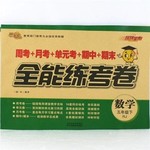题目内容
He Qiangcheng, 22, a senior and geology major from Sichuan Normal University, has almost given up trying to act like his childhood hero, Lei Feng.
“I once tried to help a woman with heavy luggage, and she gave me a suspicious look,” he complains. “Then another time, when I returned a lost dining card to the canteen, the staff asked me to use up the cash on it rather than bothering to find the owner.” But, despite having met with rejections, He still wants to be like his idol. His hero, Lei Feng, was a People’s Liberation Army soldier who came to represent altruism(无私), modesty and devotion.
March 5 marks the 50th year of Lei’s death. In 1963, Chairman Mao Zedong designated the day as “Learn From Lei Feng Day” and started a national campaign for people to copy his deeds.
Several decades after the campaign was initiated, there has been a debate about whether the spirit of Lei lives on, and whether an altruistic role model is relevant any more in a materialist society.
Some think it no longer rings a bell. “In a world when everyone emphasizes the importance of ‘me’, many of my peers think there’s little ground for giving up one’s interests purely for the sake of others,” says Lin Zi’en, 19, a sophomore English major from South China Normal University in Guangdong.
Commentators, however, point out those who regarded Lei’s spirit as being outdated have misinterpreted its meaning. Yang Haibin, deputy secretary of China Communist Youth League Beijing Committee said, “Learning from Lei Feng could be a mutually caring and benefiting act, which is the basis of civilized society. And, Lei’s spirit can be modern and relevant, says Yang. He believes that lending a helping hand for no reward is an early form of volunteering. “It’s also about being content with a simple and humble way of life,” Yang says.
Hu Danhua, 21, an international business major from China University of Political Science and Law, agrees. “I’ve gained peace of mind and spiritual fulfillment through small acts of kindness, such as teaching village pupils. I could obtain it from nowhere else,” Hu says.
58. He Qiangcheng is talked about in Paragraph 1 in order to______.
A. tell an interesting story about Lei’s spirit B. lead in the topic about Lei’s spirit
C. praised him as a good example of Lei’s spirit D. show he chases Lei’s spirit
59. The passage is mainly developed by ______.
A. analyzing causes B. making comparisons
C. examining differences D. listing quotations
60. What does the underlined part “it no longer rings a bell” in Paragraph 5 probably mean?
A. Lei’s spirit is out of date. B. Lei’s spirit is like a ring.
C. Lei’s spirit is as good as a bell. D. Lei’s spirit is the same as a bell ring.
61. Who has a negative attitude towards Lei’s spirit according to the passage?
A. He Qiangcheng. B. Lin Zi’en. C. Yang Haibin. D. Hu Danhua.
BDAB

 全能练考卷系列答案
全能练考卷系列答案 一课一练课时达标系列答案
一课一练课时达标系列答案